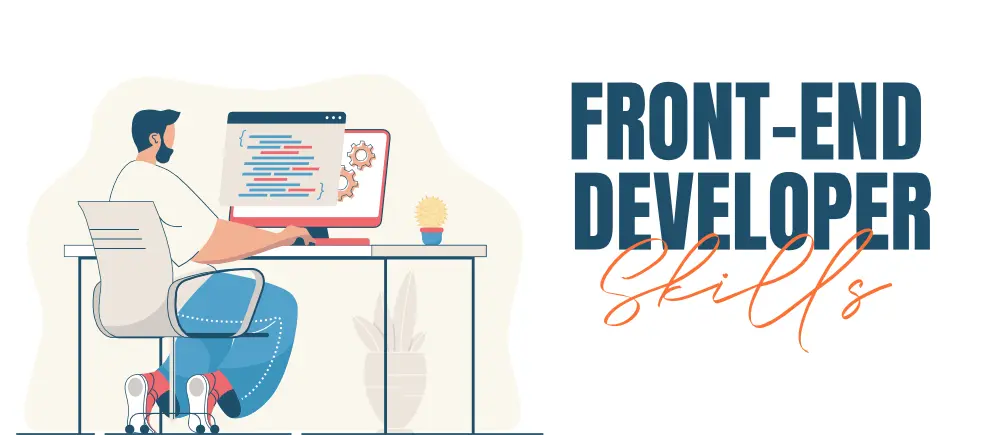
Becoming a Front-End Developer
Introduction
If you're interested in web development, becoming a front-end developer is a fantastic choice. As a front-end developer, you'll focus on building the visual and interactive parts of a website—the elements users interact with directly. From designing layouts to adding interactive features, front-end developers make websites functional and visually appealing.
In this article, we'll walk you through the essential skills and steps to help you become a successful front-end developer.
Step 1: Learn the Basics of HTML, CSS, and JavaScript
The core technologies behind any web page are HTML, CSS, and JavaScript. Understanding these three technologies is essential to get started with front-end development.
- HTML (Hypertext Markup Language): HTML is the backbone of any website. It structures the content and defines elements like headings, paragraphs, links, and images.
- CSS (Cascading Style Sheets): CSS is used to style the visual elements of a website, such as colors, fonts, layouts, and spacing.
- JavaScript: JavaScript adds interactivity to websites, enabling dynamic content such as form validation, animations, and handling user actions like clicks and scrolls.
Step 2: Explore CSS Frameworks and Preprocessors
Once you're comfortable with CSS, it's time to explore frameworks and preprocessors that can speed up your development process.
- CSS Frameworks: Tools like Bootstrap or Tailwind CSS help you build responsive layouts quickly by providing ready-to-use components and utility classes.
- CSS Preprocessors: Learn preprocessors like Sass or LESS, which offer advanced features like variables, nested rules, and functions, making your CSS more maintainable.
Step 3: Master Responsive Design
In today’s world, websites need to look good on all devices, from desktops to smartphones. Responsive web design ensures that your website adapts to different screen sizes.
Learn to use media queries in CSS, which allow you to apply different styles based on screen width, resolution, and device orientation. Additionally, flexbox and CSS grid are powerful tools for building responsive layouts without complex calculations.
Step 4: Understand Version Control (Git)
Version control is an essential skill for modern developers. Git allows you to track changes in your code, collaborate with others, and manage different versions of your projects.
Learning Git and using platforms like GitHub to host your code is a crucial step in becoming a professional developer. It allows you to maintain a clean history of your projects and collaborate efficiently with teams.
Step 5: Learn JavaScript Frameworks and Libraries
While vanilla JavaScript is essential, modern front-end development often involves using JavaScript libraries and frameworks to simplify development and improve efficiency.
- React: One of the most popular JavaScript libraries for building user interfaces, particularly single-page applications (SPAs).
- Vue.js: A lightweight and flexible framework for building interactive UIs.
- Angular: A robust JavaScript framework for building large-scale web applications.
These tools help you build faster, more scalable applications and improve your productivity as a developer.
Step 6: Build a Portfolio and Gain Experience
To demonstrate your skills to potential employers, it’s essential to build a strong portfolio. Start by creating personal projects, contributing to open-source, or working on freelance gigs. The more you practice, the better you'll get.
Some project ideas include:
- A personal portfolio website
- A task manager app
- A weather application that fetches data from an API
- A blog platform using a front-end framework
Step 7: Stay Updated and Network
Front-end development is a constantly evolving field, with new tools, frameworks, and best practices emerging regularly. Stay updated by reading blogs, attending meetups, and joining developer communities.
Networking with other developers can also help you learn from their experiences and even open doors to job opportunities.

